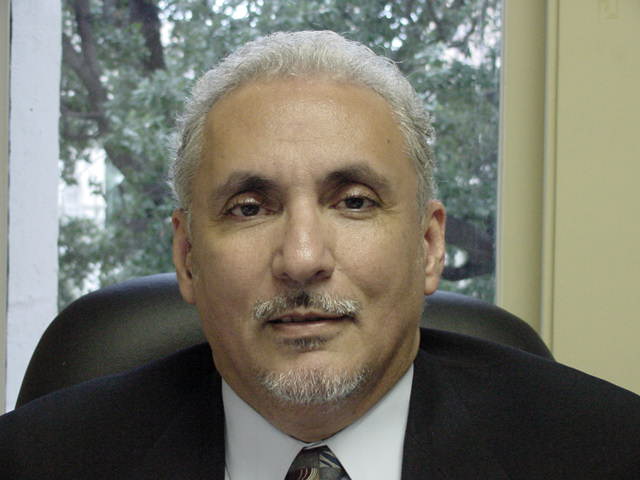Mario Salas- An Activist Hero
March 27, 2020
Mario Marcel Salas was born in San Antonio, Texas on July 30, 1949. Salas became an advocate for San Antonio’s African-American community in the early 1970s and was a key member of local activist groups such as the San Antonio chapter of the Student Nonviolent Coordinating Committee, Organizations United for Eastside Development, Black Coalition on Mass Media and Frontline 2000. Salas has served on the City Council of San Antonio in 1997, where he served two terms as Representative for District 2. He is currently a Lecturer II and a retired assistant professor of political science at the UTSA. Salas teaches African-American Studies, American politics and Texas politics.
Q: Can you tell me more about your background?
A: I went to Catholic school when I was very young and then I went to a segregated African-American high school, Wheatley High School in San Antonio, Texas. After I got out of high school, I became active in the Civil Rights movement way back in the 1960’s, and I became an organizer for the Student Non-Violent Coordinating Committee (SNCC). From that point on, I’ve been a civil rights and human rights advocate because the two really can’t be separated. I was also a city councilman for two full terms for the city of San Antonio and also vice president of the Judson Independent School District school board for two to three years. I’ve written several books over the course of years. I’m a member of the city of San Antonio’s Tricentennial commission. I guess I’m all over the road and I don’t mind being all over the road – I wear many different hats. I’m actually an alumnus from [UTSA] as well.
Q: Growing up and going to a segregated school, how were you treated as an individual with a mixed racial identity?
A: I like Nelson Mandela’s quote. He said (I’m paraphrasing) ‘I’ve fought racism all life.’ My father was a mixed race as well, African-American and Hispanic, My mother [had a] mixed heritage as well, some Irish, some Arabic. I recently [tested] my DNA and I’m all over the world and I’m very proud of that. I grew up in an African-American community. White supremacy has done a lot of damage to people in many different ways and so, I always looked at that when growing up. I would catch racist comments from African-American, whites, Hispanics; there were even Chinese students at my school that made racist comments about me. I had a lot of pride in my own diversity at a very early age so none of that really had much effect on me. There’s a sadness in being a victim of bigots and being the victims of white supremacy and being the victims of people who are totally confused when in fact there is no such thing as race. It doesn’t exist, it was invented. All of the science indicates there is no such thing, there is only one race – it’s human.
Q: You talked about your activism earlier in this interview, what would be your earliest memory of being an activist?
A: [I] was walking downtown one day, going to the movies. We walked past a store, Joshky’s. Walked past there and there were people in the store with signs protesting. So, I stopped and asked the lady, “What are y’all doing, what’s going on?” She says well they won’t serve blacks at this restaurant. I go “Wow, really?” and she said, “Yeah,” and I said, “Can I have one those signs?” So, I walked with them in the protest, 10 years old, only because I felt like that was so wrong, that’s unjust. Give me a sign if you have one and I’ll walk with you, they told me you better get your mom’s permission or something like that and I said well okay, said I’ll come back around. I did look for them several times but I found out later in life, they were able to win that battle and desegregate all the restaurants downtown.
Q: What is some advice you would give to someone that interested in becoming an activist?
A: The advice I would give is to get active, vote. Even if you’re not voting, you can still get involved and helping the poor, helping homeless people, trying to deal with human rights issues, opposing racism, opposing white supremacy, get involved in removing Confederate statues. There are all kinds of things you can do. The challenge is to get attuned with new history, get in tune with knowing the false narratives are of history, know how racism greatly influenced history and now we’re taking that apart.
Q: What is your definition of a hero?
A: It has to do with what it means to be a human being. And when you answer that question of what it means to be a human being, I think it involves an effort to make the world a better place. To participate and try to make the world a place free of racism, free of injustice. You can do it in small ways. And there so many unsung heroes that have done so many little things to make the world anew, to make it a better place. So if you want to embrace diversity, that’s one way to do it. If you want to change the laws in one way or another by advocating for changing the laws for better, then anyone can become a hero. I would say I’m a fighter for justice and if that makes me a hero so be it. But I would rather be considered a fighter of injustice for justice.






